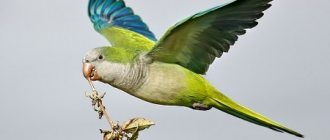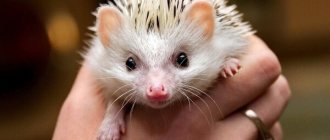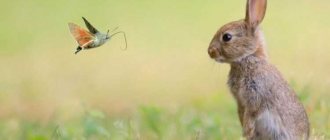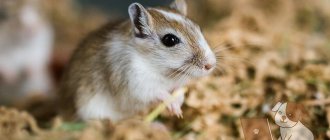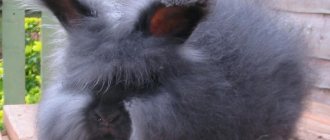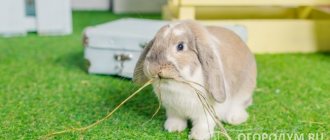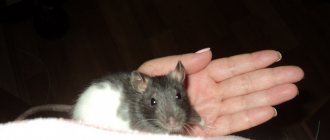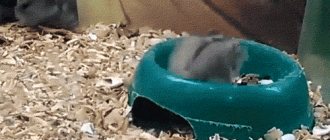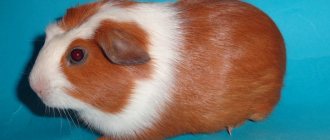Budgerigars are the most popular pets among all birds. They are loved for their love of life, cheerful disposition, high mental abilities, bright plumage and unpretentiousness to living conditions. They are found in families with small children, novice bird owners and single people. In this article you will learn everything about budgies, how they live in the wild and at home. How to buy the best feathered pet, how to care for it and what you can train it. You will find information about breeding these birds, their diseases and life expectancy.
Description, characteristics, appearance
Bright overseas birds were brought to Europe from Australia. The number of birds has spread quite quickly; they are actively breeding at home, and not just in the wild. Pets bred by people are perfectly adapted to the life and microclimate of apartments.
Chatty and noisy parrots can even pronounce short phrases. They imitate some sounds and words without understanding the meaning. The slender bird has a long tail. They participate in exhibitions of ornamental birds and win first places.
The length of the bird's wing reaches 10.5 cm. They are used for sitting, flying, and support when walking. In flight, decorative parrots look like swallows. In search of food in nature, parrots fly quite quickly, especially if they are very hungry and need to find food.
Birds of this family have tenacious and developed paws with long fingers of a pinkish, reddish or gray-blue hue. They are able to grab dense parts of food, small food, walk on the ground, or even move through trees. The eye color of wild parrots in the wild can be almost white, yellowish, or dark blue. They even distinguish the color palette.
Cheerful pets have strong beaks. It is covered by a dense stratum corneum. The shape of this bird's nose is similar to those of birds of prey.
With the help of a powerful beak, parrots quickly gnaw through seeds and shoots, and can crush large food. It is also a reliable method of protection against small predators and snakes.
The tongue of budgerigars is thick and short with a keratinized covering, which helps to grind the surface of the beak, break fruits, and clean grains. In the natural landscape, due to the shade of their plumage, parrots remain almost invisible.
The head and crop of birds usually have a yellow tint. He moves to the back area. In the sun, the plumage of budgerigars fluoresces. This way, males quickly attract females for nesting. Birds notice the glow during the day, but people only notice it at night.
I suggest you get acquainted with another type of very beautiful and intelligent parrots in the article Corella parrots: how to keep and care for them at home
Place to place a bird
The owner must choose the room where household members spend the most time. Sociability is a characteristic feature of budgerigars. These are very highly social creatures. They need support from the pack, which all members of the new family should become.
Suitable lighting
It turns out that pets living in a person’s house do not receive the proper amount of ultraviolet radiation. An ordinary lamp does not highlight it, but the sun, passing rays through the glass, loses it. A special light source is needed, otherwise problems will begin with the endocrine system of the budgerigar. This is the reason:
- stress, stress
- self-plucking,
- weaknesses,
- impaired metabolism,
- impossibility of reproducing offspring.
A parrot needs suitable lighting
Our climate is not like the one in which their ancestors were born. Daylight hours are radically different. It must be artificially lengthened with the help of additional lighting.
Temperature
It is very hot on the Australian coasts and savannas, from where the wavy birds came to us. Sometimes the thermometer on the street shows 41 degrees Celsius. The body temperature of a parrot is the same. He can hardly bear the heat. We need comfortable 22-25. Below it is worse, the frost is much more dangerous. The owner can easily create the necessary indoor climate using heaters or ventilation. Additionally, you need to learn how to regulate the humidity level.
Read also
Setting up a cage for a budgie
Drafts
The birds' home is located where there is no through wind, as well as heating radiators and appliances. Sudden changes in heat and cold will cause a cold even in the most favorable weather. And dry air will negatively affect the growth and quality of plumage.
Place the cage where there are no drafts
Where do wild parrots live in nature?
Australia is considered the birthplace of wavy pets. This is the main habitat for wild birds. They mainly live on the east and southwest coasts, where there are the least dense forests. Birds nest in semi-desert areas and steppe zones with sparse trees and shrubs.
They breed in the wild, regardless of the time of year. Parrots live in flocks. On the plains they look for grass seeds, on the green plains they look for water and other food. Birds move quickly and can fly long distances. Today, the transport of wild parrots from Australia is prohibited as the bird population is declining.
Colors of budgies
This ornamental bird, beloved by many, has a variety of plumage colors:
- Cobalt birds first appeared in London at a parrot exhibition in 1910.
- Olive greens were developed in France.
- Yellow parrots are the result of crossbreeding in Belgium.
- Light green is a natural natural color.
- Dark green ones appeared in France.
- Sky blues were bred by Belgian ornithologists.
- Gray-green parrots live in Australia.
- Gray individuals were brought from England and Australia.
- Purple appeared from German breeders.
- Bright yellow parrots (lutinos).
- Albinos with red eyes were bred in Germany in the 40s.
You can distinguish a domestic pet from a wild one by its plumage. Curly parrots with plumage in the form of climbing stems are distinguished. Spangles have a waviness with a mirror reflection, Czechs are distinguished by a fluffy cap and larger sizes.
Chubby or crested birds have crests on their heads of different shapes. Based on the degree of color, birds are classified into single-colored and multi-colored birds. Among them there are penguins, harlequins and birds with a chaotic arrangement of spots.
What do budgies eat?
Basically, all bird breeders buy special mixtures for feeding them. They include sunflower seeds, onion grasses, canary grass, millet, and oats. The product must not contain any chemicals, dyes or expired expiration dates.
Sometimes it is useful to give the bird sprouted oats, just fresh ones each time. The remaining remains are immediately thrown out of the feeder. Ready-made mixtures must be given during hatching, molting, and if the bird is sick.
For good health of wavy birds, the following is introduced into their diet:
- clean branches of fruit trees;
- pumpkin, carrots, beets;
- peaches, pears, plums;
- strawberries, kiwi, apples;
- boiled chopped eggs and cottage cheese.
Be careful when giving special cereal sticks for birds or honey crackers. Fruits and vegetables are given fresh and pure. Vitamins are administered only during feeding of offspring, illness, severe stress or molting.
It is forbidden to give the bird alcohol and chocolate, sweet candies, rhubarb and potatoes, milk and kefir. Parrots are often poisoned by home ornamental plants. In order for their digestion to occur normally, it is necessary to pour clean sand into the cage.
It is useful to give flaxseed, rice porridge, buckwheat, wheat or rye to birds at home. They are boiled without adding salt. Fresh corn, grapes, banana, clover grass, dandelion grass, and wood lice are suitable as top dressing.
How do budgies reproduce?
In captivity, birds of this family live 10-15 years. Before nesting in nature, the female chooses a male. She is usually attracted by the color features of a male representative and the ability of his feathers to fluoresce under the influence of sunlight.
In Australia, the female incubates the chicks twice during the year. Pets should have long breaks before nesting. Under natural conditions, wavy fish live in rock crevices or tree hollows.
A house with straw bedding is set up for pets. On average, the female lays 3-5 eggs at a time. Sometimes 10-12 pcs. She incubates them for 20 days. At this time, the male obtains and brings food. The chicks are born blind and naked.
After a few weeks, their body is covered with dense fluff. After a month, feathers appear. Normal plumage is formed no earlier than 3 months of age. You should not buy a younger bird. Genetic diseases will appear after the first molt.
Breeding
One budgie is still bored, even if people constantly play with him. And if you are rarely at home, then your pet definitely needs a friend. Some owners don't get a second budgie because they don't want to deal with the chicks. But you can have two same-sex birds! If you deliberately get a pair of wavy birds to breed chicks, pay attention to the bird’s wax. This is a small growth above the beak. To put it simply, “nose.” If the wax is brown, this is a female, and if it is blue or light blue, this is a male.
Budgerigars are monogamous. But breeders recommend immediately buying two birds raised in the same flock, so that they definitely do not abandon each other. Although domestic wavy birds rarely behave obstinately towards a new friend or girlfriend, so the risks of being left without bird offspring are small.
Nest house
In captivity, budgerigars reproduce quite actively. But in addition to warmth, light, food and water, one more condition is needed - a house. The female will not allow the male to approach her until she has built a nest in a place hidden from prying eyes. Nesting houses for wavy birds are sold in pet stores and resemble birdhouses: a wooden or plastic box with a hole.
The dimensions of the house must be at least 30*30*30. If it is less spacious, the female may destroy some of the offspring so that the rest of the chicks are comfortable. The bottom of the house is covered with sawdust or hay. You can add medicinal chamomile flowers, which will serve as a preventative against infecting the female and chicks with parasites.
Eggs and chicks
A female budgerigar can lay up to 6 eggs. All this time she will sit in the house and come out only occasionally - to feed. Although some particularly caring males fly into the house and feed the hen. You cannot get the eggs out, otherwise the female may refuse to hatch. You need to check the offspring through the removed top cover of the house. If the eggs sit for more than 3 weeks, they are empty.
A small bird cannot always cope with warming a large number of eggs, so it is necessary to maintain an optimal temperature. If the room is cool, you need to warm the house from outside with a lamp. And no drafts.
A nursing female and grown chicks should be fed with water-based porridges: millet, wheat, barley. When the babies turn 1.5 months old, they will begin to crawl out of the house. As soon as the last chick leaves the nest, the house must be removed. Otherwise, the parents can immediately move on to the next litter. The female needs to gain strength for at least six months.
It is impossible not to love budgies. If these charming birds appear in an apartment one day, then people keep them all the time. Cheerful chirping, perky disposition and friendliness perfectly brighten up loneliness and lift your spirits. You just need to feed the wavy birds correctly and ensure their safety.
Setting up a cage for a budgie
A feathered pet should live in a spacious and clean cage. The norm for one parrot is 30 cm width, 35 cm height and 40 cm length. It is better to take a large aviary or a cage twice as large so that the bird can fly a little inside.
Inside there should be different perches made of wood, not plastic. This is important for grinding down the claws on the paws. Plastic perches that are too thick or thin can cause deformed birds' toes and claws, calluses and calluses.
There must be fresh water in the nest of the wavy; it is poured daily into a special fixed drinking bowl. The grain mixture is poured into the feeder. There is a separate container for mineral supplements and soft food. A stone is attached to one side to grind down the beak. Parrots love toys - ropes, swings, bells. To make cleaning up after your pet faster and easier, the cage is equipped with a deep retractable tray.
Wash the bird's cage with baking soda and warm water. No cleaning agents are used. It is better to let your feathered friend out of his cage every day and fly around the room. It is first ventilated, but then the vents and windows are closed.
They are covered with curtains to prevent the bird from hitting the glass. All indoor plants are also removed so that the budgie does not get poisoned by them. Feathered pets love water treatments. They are regularly given a bath with water, and the birds in the cage are sprayed with a spray bottle during hot weather.
Owner reviews
Catherine
We have a blue budgie, it looks very impressive. The guests who come to my daughter simply “stick” to the cage. We took it very small, we are not planning a couple. We want to teach you how to talk. While Our Styopa is learning to say his name. He succeeds in Tyopa. We regretted choosing such a nickname. It turns out that the letter “s” is very difficult for parrots. There are no problems with feeding. We have greens from our garden; this year we will sow a bed of spinach especially for our pet.
How to choose a wavy pet
Experts recommend buying a pet for 3-4 months. An adult parrot will take a long time to adapt and may even get sick. It is better to give preference to parrot breeders who keep their pets in the right conditions. In markets you can come across unhealthy poultry.
A healthy bird has dense feathers that are clean and shiny. The paws have even scales. A sick individual is sedentary, indifferent to others, often unkempt, with dull and ruffled feathers.
It is important to remember before purchasing that birds love to sing and can do this very early in the morning. They litter a lot - with paper scraps, feathers, droppings, and food husks. You will have to clean and clean the cage every day to prevent the unpleasant smell of feces from appearing.
Lovers of indoor flowers should move their plants to another room. The bird can taste the soil, gnaw leaves, and then pick up helminths.
Near the parrot and in this room where it lives, you cannot smoke, spray perfume, air fresheners, paint your nails, or cook food. The delicate respiratory system of the wavy can be seriously damaged by this.
What do budgies get sick with?
Very often, decorative parrots suffer from colds. They begin to sneeze and sniffle. Their feathers are often infested by lice beetles and mites. This causes feather loss and itching. If the bird has lost its appetite and looks lethargic, it is quite possible that it has picked up worms. It is necessary to check your budgerigar's cloaca periodically, especially during the breeding season.
Sick birds are treated with anthelmintic agents, chamomile decoction, vitamin preparations, tick sprays, and a lamp is sent to disinfect the cage.
Classification
According to I. Fisher's classification system, all budgerigars are divided into two groups.
The first group includes birds of any color with normal waviness, including four subgroups:
- Green with black wave pattern
- Blue with black wave pattern
- Yellow with a faint bluish wavy pattern
- White with a faint bluish wavy pattern
In these subgroups, 3 main tones of plumage are distinguished: light color, medium color, dark.
The second group includes parrots of variegated colors that have not retained the wavy pattern:
- Albinos
- Lutinos
- With opaline pattern
- With brown pattern
- Motleys
- Harlequins
- Lacewings
- Versatile
Crested budgies are placed in a separate group.
How to best care for a budgie
Stress for a bird is moving to a new habitat. At this time, it is better not to turn on the TV loudly and remove other pets that will disturb your feathered friend. At night, some breeders cover the cage with a thin sheet, making several slits for air to enter.
On warm days, you can expose your bird cage to the sun to help produce vitamin D. Parrots usually molt twice a year. They feed her with vitamins and try not to disturb her. You can occasionally add ascorbic acid or lemon juice to the water.
It doesn't need to be boiled. Regular filtered or bottled water will do. Once a month, a general cleaning is carried out in the feathered pet’s house, wiping it with water, a decoction of wormwood or chamomile.
Character, abilities, training
According to reviews from owners, budgies are very nimble, active and talkative. If you have such a parrot at home, everyone will hear its chirping. Especially in the morning at dawn and in the evening. Therefore, if you like to sleep in the morning, cover the cage with your pet with a thick cloth, leaving a small gap for breathing. They love to shout down TV, loud music, and people talking.
However, it is precisely for this noisy activity that owners love budgies. In addition, birds can be taught to reproduce human speech and various sounds.
Wavys are extremely open to communication, they easily get along with their owner, become his companion and devoted friend, having felt care and attention from the person.
It is not very difficult to teach them to speak. The main thing is that your pet trusts you. Males and birds under five months of age are considered more “talkative” and capable of learning.
The very first thing that owners usually teach a budgie is to say its name. The main thing in learning is regularity, consistency and patience. 10-20 minutes daily is enough to practice. Reward your pet with a treat for every successful action. It won't be long before your parrot speaks the same language as you. Sometimes it will be very funny, like in this video:
Temperature conditions and suitable lighting
In the room where your wavy friend lives, it is important to maintain favorable temperature conditions, microclimate and lighting. Do not place the cage with pets in a draft or direct sunlight, or near hot radiators. The suitable temperature for poultry is 20-22 degrees. Humidity – 60%.
The light regime is also very important so that the bird can sleep and rest peacefully. The parrot is taken out onto the balcony in spring and summer on cool days. In this case, you can throw a light tulle over the cage or create an area with shadow.
Nutrition
If you properly care for a budgie (boy or girl) after purchasing it (purchased at a pet store or from your own hands), it can live up to approximately 15 years. Balanced feeding (or the necessary diet) is an important component of proper keeping and care of parrots. These birds have a high body temperature (about 41 degrees) and, accordingly, have a fast metabolism. In this regard, the pet must eat the right way in order to promptly replenish its body with all the necessary nutrients.
